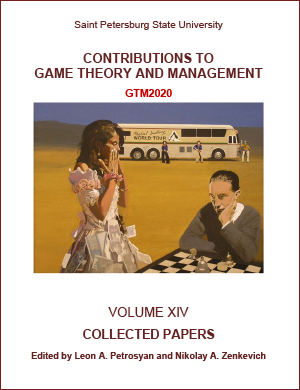A Categorical Characterization of a ①-Iteratively Defined State of Common Knowledge
DOI:
https://doi.org/10.21638/11701/spbu31.2021.24Abstract
We present here a novel approach to the analysis of common knowledge based on category theory. In particular, we model the global epistemic state for a given set of agents through a hierarchy of beliefs represented by a presheaf construction. Then, by employing the properties of a categorical monad, we prove the existence of a state, obtained in an iterative fashion, in which all agents acquire common knowledge of some underlying statement. In order to guarantee the existence of a fixed point under certain suitable conditions, we make use of the properties entailed by Sergeyev's numeral system called grossone, which allows a finer control on the relevant structure of the infinitely nested epistemic states.
Keywords:
common knowledge, category theory, grossone
Downloads
References
Downloads
Published
How to Cite
Issue
Section
License
Articles of "Contributions to Game Theory and Management" are open access distributed under the terms of the License Agreement with Saint Petersburg State University, which permits to the authors unrestricted distribution and self-archiving free of charge.




